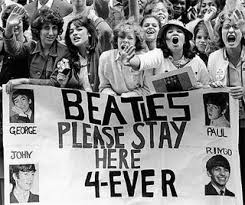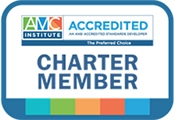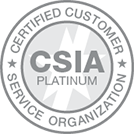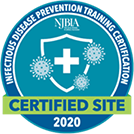 I had the opportunity to hear a talk by Sara Sladek, author of End of Membership As We Know It, while attending the 3rd Annual Meeting of the Mid-Atlantic Society of Association Executives (MASAE) in November 2012. Initially, I was quite confused as she showed us lots of pictures from the 1960s of the evolution of the Beatles while playing their music. Now, I am not a huge Beatles fan (please don’t stone me), but it was intriguing.
I had the opportunity to hear a talk by Sara Sladek, author of End of Membership As We Know It, while attending the 3rd Annual Meeting of the Mid-Atlantic Society of Association Executives (MASAE) in November 2012. Initially, I was quite confused as she showed us lots of pictures from the 1960s of the evolution of the Beatles while playing their music. Now, I am not a huge Beatles fan (please don’t stone me), but it was intriguing.
Her point? In 1964 the world experienced “Beatle Mania” (not me however since that was the year I was born), and some thought, could this be the end of music as we know it? Has everything that was well known before now become irrelevant? No, not necessarily, but this was certainly a new era in the music industry that set the tone for a paradigm shift in the world of rock and roll.
Association membership has also entered a new era.
While the economy started its descent with the burst of the dot-com bubble, the current recession has set us up for a new and now worst economy since the depression — although that can be debated as well. As a result, association members demand a return on their investment regardless of the price they pay.
The world has seen more new technology in the last 5 years than in the entire last 50 years. There are now higher expectations for the speed and delivery of services and information.
In terms of demographics, we are on the brink of the largest shift in human capital ever seen. While most association memberships are currently made up of baby boomers, by 2015, millennials will make up the majority of the work force. This generation has been raised with 24/7 access to news and information. And then there are the genX-ers who choose to remain unengaged in associations due to their distrust of authority— they prefer not to be micromanaged, yet crave professional development opportunities. Generation Y, treated as equals by their parents, expect the same treatment by associations, having been raised on technology, they value it as much they do the oxygen they breathe!
So how do associations remain relevant?
Evaluate the type of association you are, and consider changing it.Scrooge organizations have dues and charge for everything else. Skim milk organizations have all their resources in programs of return on investment (ROI), but this is a short-term investment. Membership is a long-term investment that has a better ROI. Antique associations have a great brand and following, but recently have been struggling because they cannot adapt to changes.Successful organizations move members from joiners to renewers.
Members join an association seeking a solution to a problem. They renew when the problem has been solved, but then are seeking added value and meaningful engagement. Create engagement and value by:
Being outcome-focused vs. feature-focused. Sell the value that members see and want from your services and programs. Appealling to all generations. Consider the influences on their decisions such as access to technology and information, need for recognition and desire to be treated as equals. Customizing products and services. Tailor what you offer to workforce, career, leadership, and skill developments needs.So, stop talking about what you’ve done and start creating meaningful outcomes and engaging experiences for your members!




